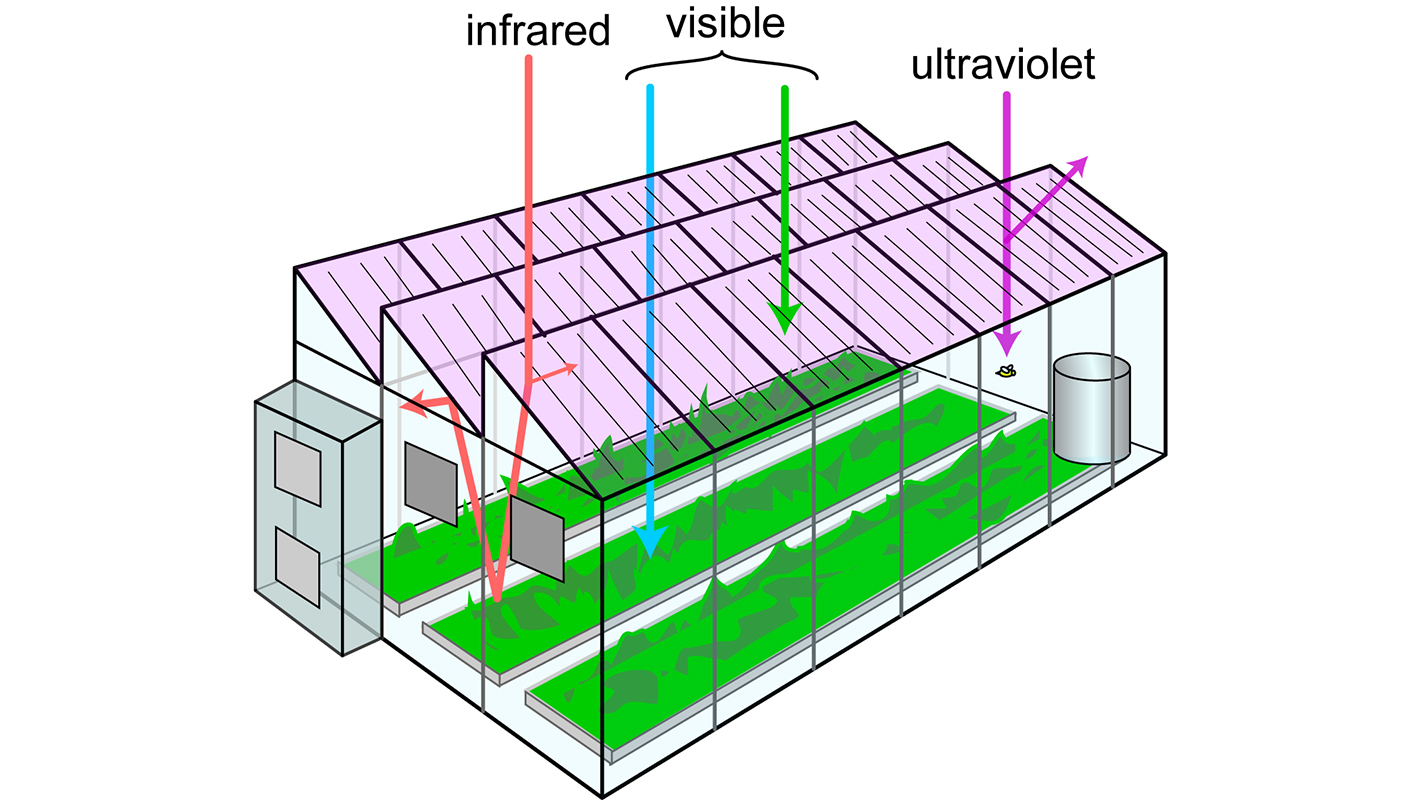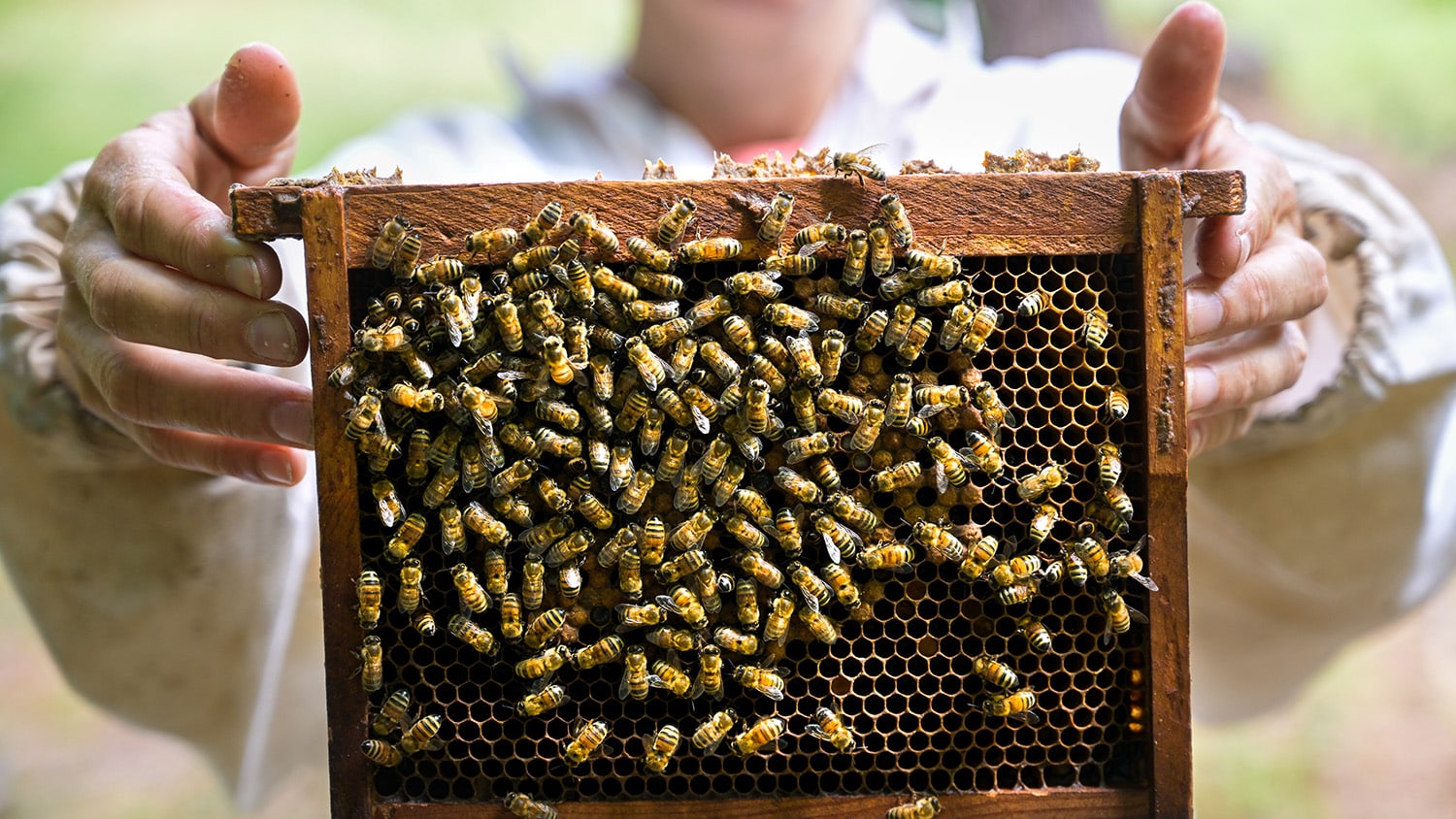Researchers from NC State and UNC-Chapel Hill are launching a project to develop next generation greenhouses with built-in solar cells that make use of the entire spectrum of solar light.
“We know that plants don’t make use of all wavelengths of light – leaves reflect green and near-infrared light,” says Brendan O’Connor, primary investigator (PI) of the project and an engineering researcher who studies organic electronics.
“So we plan to make solar cells that absorb those unused wavelengths of light, but allow the remainder of the sunlight to pass through to the plants,” O’Connor says. “This would allow us to create greenhouses that generate electricity using solar power, without adversely affecting plant growth. We call the overarching concept the Solar Powered Integrated Greenhouse, or SPRING system.”
The project is supported by a four-year, $3 million grant from a new National Science Foundation program called Innovations at the Nexus of Food, Energy and Water Systems (INFEWS).
The researchers also want to be able to fine-tune the solar cells to maximize their utility in different climates and complement plant growth. For example, the right solar cells could allow growers to better regulate temperature in greenhouses and cultivate plants more efficiently – using less water, for example.
“We envision a new, zero-energy farming system that drastically improves the efficiency of land use and water consumption,” O’Connor says. “And making greenhouses more effective across a broader range of climates would allow farms to be located next to urban centers.”
In addition to O’Connor, the project has five co-PIs: Harald Ade, a distinguished professor of physics at NC State; Heike Sederoff, a professor of plant and microbial biology at NC State; Joe DeCarolis, an associate professor of environmental engineering at NC State; Carole Saravitz, director of the Phytotron at NC State; and Wei You, an associate professor of chemistry at UNC-Chapel Hill.
- Categories:



